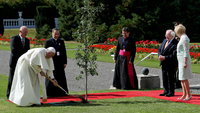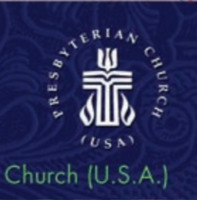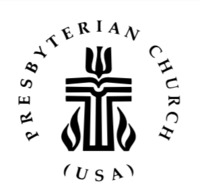Search
185 items
-
Eco-Prayer Guidelines
Eco–Prayer Guidelines offers suggestions for eco-prayer and good will intentions. They describe eco-prayer principles and explain why praying and positive intentions are important. Their 9 principles are listed in the guidelines and more information on the definition of eco-theology. -
San Diego Creation Care Team Success Stories
Catholic Climate Covenant has created two short videos to discuss how different churches in the San Diego diocese in California have worked to be better stewards of God’s creation. The parish of Our Mother of Confidence in San Diego, California, has taken action to reduce water and energy usage while the Saint James Parish and Academy in Solana Beach, California, has implemented environmentally conscious projects and initiatives in their community. -
7: An Experimental Mutiny Against Excess
Overwhelmed by the excess in her own life, Jen Hatmaker and her family set out on a project they called “Seven.” Highlighting seven areas of excess, they committed to living a little more simply every month. Originally published in 2011 and updated in 2017, 7 has been utilized for book studies in many Christian faith communities. For those overwhelmed with the task of implementing creation care in their own lives, Hatmaker’s memoir tells of her family’s practical and faith inspired experiment. More information about Hatmaker’s project can be found on her blog. -
Dayton Divests
In June 2014, the University of Dayton became the first Catholic university in the United States to announce their divestment from coal and fossil fuels. Members of the university staff see this move as part of the university’s commitment to “being a responsible steward of the Earth’s natural resources.” This decision was commended by the president of the Association of Catholic Colleges and Universities. Their decision was one inspired by faith reflection as well as a commitment to financial stability for the university.
Beyond divesting from coal and fossil fuels, the university has taken further steps to move their campus toward efficiency and sustainability. The university now has two full time employees who work to improve campus sustainability and offers academic programs in these areas as well. The University of Dayton is also home to the Hanley Sustainability Institute. -
Pope Tells Oil Executives to Act on Climate: "There Is No Time to Lose’”
This past Saturday, the pope gathered leaders of the world’s largest oil companies for a closed-door conference at the Vatican. He commended oil and gas companies for progress made in developing more careful approaches to assess of climate risk and adjustments made to their business practices. However, these actions are not enough. Pressure has been building on oil and gas companies to transition to less polluting forms of energy, often coupled with the threat of fossil-fuel divestment.
The pope reiterated his call for a transition from fossil fuels “to a greater use of energy sources that are highly efficient while producing low levels of pollution.” He emphasized that the poor who would suffer the most from the effects global warming. And that we owe it to the poorer countries and future generations. -
Divest and Reinvest Central
GreenFaith has created a list of known religious efforts to divest and reinvest from fossil fuels. The list includes religious groups that have: divested their own funds, committed to never investing in fossil fuels, passed or considered national or local resolutions, focused on reinvestment, or taken divestment or reinvestment on pension funds. -
10 Eco-Mission Projects
Evangelical Environmental Network MOMS has created a list of family oriented service projects that focus on the environment. These ideas not only offer ways to serve the community, but also take care of God’s earth in simple but effective ways. -
A Prayer for Labour Day
As Labor Day approaches, it is important to remember to relax and enjoy a day free of work. Godspace (https://godspacelight.com/about/) has offered a prayer to give thanks for the hard work of laborers and communities, and to reflect on gratitude, mercy, service, justice, and the beauty of creation through God’s work. This prayer is adapted from a prayer found on the Christ Church Ontario website. -
For Love of Lavender
For Love of Lavender is an account of how Christine Sine, creator of Godspace and writer for Evangelical Environmental Network MOMS, encountered God through the beauty, fragrance, and abundance of the lavender in her garden. Reflecting on her garden informs her of God's work and calls to mind numerous bible verses, including Proverbs 27:9: The heart is delighted by the fragrance of oil and sweet perfumes, and in just the same way, the soul is sweetened by the wise counsel of a friend. Christine also mentions how to use these lessons to teach children. -
Creation Care Hack: Energy Efficiency at Home and Energy Efficient Kits
One of the most effective ways to alleviate the impact of carbon emissions on the planet is to reduce individual energy usage. Evangelical Environmental Network has created a resource guide that provides practical tips and suggestions to decrease energy output. It also includes ways to create energy efficient kits that can be distributed at churches or used as part of a mission project. -
Irish Bishops Announce Divestment from Fossil Fuels Ahead of the Pope's Visit
The Irish Catholic Bishops Conference announced it would divest from fossil fuels hours before the arrival of Pope Francis. The bishop's move means withdrawing investments in 200 oil and gas companies within five years. The bill was introduced in the Irish Parliament, requiring the country’s sovereign wealth fund to divest from all fossil fuels. If the Irish bill passes, it will make Ireland the first government to divest from fossil fuels. -
Columbus Catholic School becomes Designated GreenSpot School
The GreenSpot School designation indicates that a school has taken initiatives to educate their students and staff about sustainability, water issues, conserving energy, reducing waste, and green transportation. St. Mary School Catholic school has become the first in Columbus to earn this designation. They have implemented a recycling program, local garden, and composting, which qualified them to become a GreenSpot School. They have created a short video of students discussing their engagement and staff discussing the impact of becoming a GreenSpot School. -
Caring for Creation Using LED Lights
Since the release of Laudato si’, many Catholic churches have made caring for creation a priority. About a year ago, the Catholic Diocese of Columbus started The Creation Care Team to help in their task of caring for creation. Their main role is to promote the church’s teachings on care for creation and in particular how it was articulated in Laudato si’. They assemble groups of people with specific initiatives who work on spreading awareness, educating, and developing practical ways for Catholics to live. While their work has impacts that spread far and wide, one distinct person who has made a difference is Bruce Boylan, the Director of Facilities for the Catholic Diocese of Columbus.
Around a year ago, Bruce and his team started looking for ways to help Catholic schools in the area reduce their energy costs. They came upon the idea of LED lights and obtained a few samples that were first tried in the cafeteria of St. Mary’s church. An example of the difference between a normal fluorescent bulb and an LED bulb can be seen below. They found that there was a significant improvement in lighting and cost, but the payback time took about nine months. The problem was in that nine months; if a parish or school did not have the money to invest right away, then nine months was too long to wait for saving money. Along with the payback time being delayed, the price of the LED bulbs were about sixteen dollars apiece and they were difficult to install. All these problems were holding them back, until they found a local realtor.
Late last year, they found a local realtor who was selling LED bulbs for six dollars apiece and they were much easier to install. With this new price, the payback time was reduced from nine months to only three and a half months. With this lower price and easier installation, these bulbs caused a 73% reduction in an energy bill for lights after just three and a half months. The math done to calculate these figures can be seen below. Now, the idea of LED lights became much more plausible for everyone.
Bruce placed his first order for 500 LED bulbs to replace the lights in the Catholic Diocese building in Columbus. The cost was 3,000 dollars and they have an expected rebate of 1,500 dollars. Even without the rebate, within three and a half months they will be saving enough money to make the purchase worth it. After the increase of confidence in these bulbs, they started to spread the word to buildings across the area. Schools have the highest interest because they have the most to gain. They have an immense need for lighting and have their lighting in use more often compared to parishes and other buildings. A school in the area has recently placed an order for 100 LED bulbs to sample. They found them to be well worth it and have since placed an order for 400 more bulbs. The success of these LED bulbs is astronomical and with the continued work of Bruce and The Creation Care Team, it will only continue to grow. -
Earth Day statement from ELCA presiding bishop
The Reverend Elizabeth A. Eaton, Presiding Bishop of the Evangelical Lutheran Church in America (ELCA), issued an Earth Day statement on behalf of the ELCA. A salient excerpt from the statement is shown below:
"The effects of the warming climate are felt in nearly every corner of the globe. These include increased migration, food insecurity due to changing agricultural landscapes, national security issues and health problems. As bad as it is for all creation, the most vulnerable people around the world are suffering the most. Yet they have contributed the least and, as noted in the United Nation's 2030 Agenda for Sustainable Development,[iii] are ill equipped to adapt to or mitigate the effects of a changing climate to build resilient communities." -
Presbyterians and Climate Change
This article posted on Yale Climate Connections discusses grassroots efforts of Presbyterian organizations, and notes specific time frames of salient Presbyterian accomplishments with regard to climate change. The following excerpt provides a general overview of their goals and mission:
"Presbyterians are engaged in many activities to combat climate change, from Earth Forums to hunger programs addressing food and climate crises and protests against practices that encourage reliance on coal. Since 2010, the Presbyterian Church has given 80 congregations an Earth Care Congregation Certification for demonstrating a strong commitment to environmental care." -
PC(USA) Collaborative Agenda on Environmental Stewardship
Chief executives of the six churches of the Presbyterian Church (U.S.A.) provide their rationale for creating the Collaborative Agenda on Environmental Stewardship:
"Noting the deep concern about urgent environmental challenges expressed by many commissioners at the 221st General Assembly (2014), chief executives of the six agencies of the Presbyterian Church (U.S.A.) appointed a working group to develop a joint response. The group consisting of at least one staff member per agency—was asked to craft a positive statement of what each agency, and the agencies together, have done and plan to do regarding environmental stewardship. This document is designed to call attention to ongoing efforts by the PC(USA) to confront the underlying causes of climate change, and to resources available through the six agencies to congregations, mid councils, and other mission and ministry groups wishing to join in the effort. The working group, meeting together regularly over a period of nine months, has produced the following document— 'Collaborative Agenda on Environmental Stewardship.' It has been reviewed by each of the agency boards, which have each endorsed the document as a whole and recommended that the General Assembly also endorse it as a helpful resource to the whole denomination. This effort is particularly noteworthy as it is unusual for an item of business to come to the assembly from a collaboration of all six agencies." -
Blessed Tomorrow - Caring for Creation Today - Commitment to Act on Climate Change
The Presbyterian Church acknowledges that burning fossil fuels can cause irreparable damage to the Earth and to humans, with a disproportionate impact on the poor and vulnerable, and advocate instead for cleaner energy sources. They emphasize that care for creation is not a political, economic, or scientific issue, but rather a moral responsibility laid before us by God. For this reason, they are partnering with Blessed Tomorrow, to facilitate the creation of new tools and guides that will help to create a more sustainable future. -
Solar
The Presbyterian Church has put forth the following webinar, providing some suggestions for both individuals and congregations to utilize cleaner sources of energy and reduce costs. The introduction is to the webinar is shown below:
"As the realities of climate change present an ever increasing urgency to our need to act faithfully in our energy consumption, many Presbyterians are exploring ways to support, purchase, and share renewable energy resources as an alternative to fossil fuel energy. From Presbyterian congregations drawing interest from the passers-by that notice solar panels on their rooftops, to a Presbyterian teen purchasing solar panels to charge his electric lawnmower (part of his carbon-neutral lawn-care service), the time is ripe to explore the options of solar energy as part of our Christian discipleship." -
Climate Change
The Presbyterian Church has put forth this video on care for creation, emphasizing that Christ has called us to go out into the world to care for creation and our fellow humans, especially the poor. The Union of Concerned Scientists has identified food, transportation, and energy as three key areas of focus to help stem climate change Congregations can help by implementing energy saving techniques, participate in recycling and composting waste, teaching children to grow food, and incorporating salient creation care concepts within educational settings. -
The Power to Change
The 218th General Assembly of the Presbyterian Church U.S.A. (PCUSA) has put forth this resolution on energy and climate change as a resource for both individuals and entire congregations. Topics at the forefront of the report include: global warming, eco-justice norms, energy guidelines, non-renewable energy sources, and alternative and renewable energy sources. The final section includes resources for education, action and advocacy. -
Report and Recommendations on Limited Water Resources and Takings
The 216th General Assembly of the Presbyterian Church U.S.A. put forth this report on recommendations regarding critical water issues. The first half discusses water with regard to ethical considerations and sustainability. The second part provides an action/study guide that is designed for individual use as well as educational purposes. -
Globalization and the Environment
This study paper by Dr. Robert L. Stivers focuses on various types of attitudes and perspectives regarding human interaction with the environment. He maintains that environmental degradation has multiple causes, of which globalization might only be one factor. Dr. Stivers offers that globalization is a contributor to the extent that affluent individuals from around the world have yet to curb their spending habits and attitudes with regard its negative impact on nature. -
We Are What We Eat
The 214th General Assembly (2002) Presbyterian Church (U.S.A.) approved the following report titled We Are What We Eat. This report focuses on how people can influence the agriculture revolution with regard to sustainability, stewardship compassion, and community. The final section provides suggestions for activities and studies that congregations can engage in with regard to food production/consumption. -
Hazardous Waste, Race, and the Environment
This statement was approved by the 207th General Assembly Presbyterian Church (U.S.A.), 1995. The predominant theme focuses on the impact that hazardous waste has on individuals who are suffering from poverty and minority groups. The final section provides suggestions for taking action. -
Restoring Creation for Ecology and Justice
This report was adopted by the 202nd General Assembly (1990) Presbyterian Church (U.S.A.). Their Committee on Social Witness Policy urges the assembly to adopt specified policies within the document. The report covers of multitude of critical environmental issues, with sound policy recommendations and actions that congregations can take to support the myriad of sustainability issues.

























